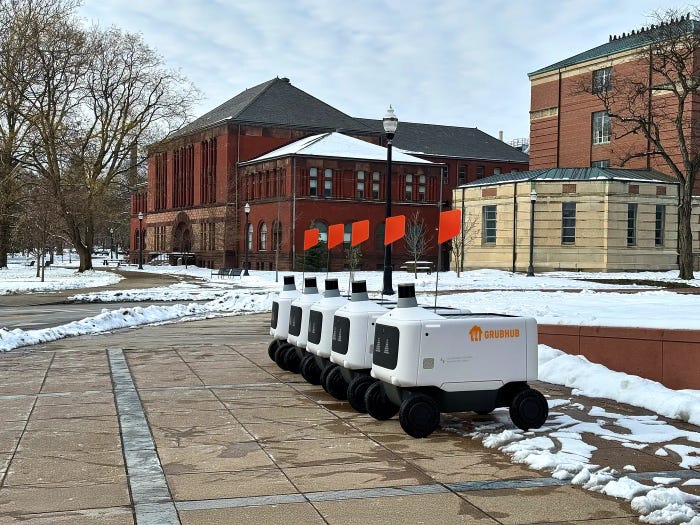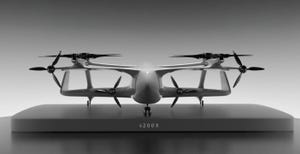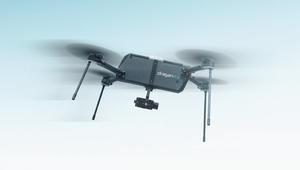Automation, Autonomy and Accountability, Agentic AI in 2025Automation, Autonomy and Accountability, Agentic AI in 2025
Experts say Agentic AI will revolutionize industries in 2025, enhancing autonomy, accountability and automation across sectors

Agentic AI, or AI agents, are AI systems that can act autonomously to achieve goals with minimal human intervention. They independently take actions, adapt in real time and solve multi-step problems based on context and objectives to make decisions, plan, learn and communicate.
Agentic AI went mainstream in 2024 and is expected to surge in 2025. IoT World Today has collected agentic AI predictions from companies across industries, examining how they expect agentic AI to transform industries in the coming year.
Here are some of the major trends experts anticipate for 2025, including operational transformation, workflow automation, accountability and tool downsizing.
Ritika Gunnar, general manager of data and AI at IBM:
“As agentic AI emerges as a predominant theme in 2025 – marking a fundamental shift from traditional AI tools to proactive agents and teams of agents – so too will questions around accountability and control of these increasingly autonomous systems. This will bring greater attention to the guardrails, processes and tools for how we govern agents to build trust for this powerful new frontier of AI capabilities. It will also heighten the need to upskill employees across every discipline and leadership level so they can responsibly develop, use and oversee agentic solutions”
Jill Goldstein, global managing partner of HR and talent transformation at IBM Consulting:
“We're entering a new chapter in how employees get work done with the rise of AI agents. Unlike AI assistants, AI agents can generate plans based on a prompt and carry out tasks independently. They are most effective when focused on specialized tasks and working together with other agents on complex, multipart requests. As AI agents become more common, companies will need to reevaluate their work processes and create new types of teams where humans oversee groups of autonomous AI agents.”
Charles Crouchman, chief product officer at Redwood Software:
“Agentic AI will push automation solutions beyond simple task execution, enabling intelligent decision-making on which tasks to run, when and in what order based on context — not just pre-set schedules or triggers.”
Burley Kawasaki, global vice president of product marketing and strategy at Creatio:
“Agentic AI, capable of autonomous decision-making, will handle repetitive front-line tasks, from initial customer inquiries to scheduling and lead qualification. In 2025, teams will be supported by AI agents capable of handling customer touchpoints autonomously, shifting human roles to strategic and empathetic tasks.”
Nitesh Bansal, R Systems CEO:
“In the coming years, generative AI copilots, equipped with expanded memory and an agentic mesh framework, will increasingly enhance the software development life cycle (SDLC). As these models gain the capability to process large codebases, integrate complex documentation and third-party tools, and manage vast amounts of project data, they will act as true copilots across all SDLC roles. The agentic mesh — a network of specialized AI agents—will coordinate and adapt autonomously to project needs, connecting quality assurance analysts, product managers, designers, architects, DevOps and database admins in a cohesive system that anticipates and meets workflow demands.
With the agentic mesh, enterprises can deploy AI copilots that offer services such as high-fidelity UI testing, dynamic UX design, advanced prompting and domain-specific customization. This interconnected intelligence will automate routine tasks, allowing engineers to focus on high-value, innovation-driven initiatives. Ultimately, this will enable enterprises to deliver enhanced customer experiences, agile development processes and a new standard of efficiency and productivity.”
Kjell Carlsson, head of AI strategy at Domino Data Lab:
“Generative AI has been the shiny exciting object for two years now, but that’s about to change. There has been a lot of buzz around its capabilities and the massive investment flowing into generative AI startups. However, AI is already starting to transform from being that shiny new toy that automatically solves everything workers struggle to do, to being just another technology that solves targeted problems and requires hard work, extensive skills and specialized capabilities to deploy. In short, AI will transition from being amazing and impractical to being boring and impactful.
Agentic AI will continue to be hyped as the next big thing that will replace the majority of human tasks, but that won’t happen in 2025, if ever. Instead, organizations are starting to set their sights on a more practical variant of agentic AI where AI automates narrow, highly controlled tasks – like getting a rebate on your delayed food delivery. In short, the hottest part of AI in 2025 will be the boring, but valuable, topic of AI engineering – how to integrate, operationalize and govern the ecosystem of technology components you need to make AI solutions work.”
Christian Buckner, senior vice president of data analytics and IoT at Altair:
“Agentic AI will transform data analytics in 2025. Today, many business leaders struggle with knowing what questions to ask their data or where to find the answers. AI agents are changing that by automatically delivering insights and recommendations, without the need for anyone to ask. This level of automation will be crucial for helping organizations unlock deeper understanding and connections within their data and empowering them to make more strategic decisions for business advantage. Businesses need to establish guardrails to control AI-driven suggestions and maintain trust in the results.”
Eric Sydell, Vero AI CEO:
“The next big wave of innovation will be agentic AI, where basic generative AI models are combined with traditional coding to autonomously carry out specific tasks. Companies like Microsoft are already deploying a range of agents to automate workflows and improve efficiency. In 2025, we can expect this trend to accelerate, as autonomous agents become more capable and integrated into business processes. However, the deployment of smart, autonomous agents will require careful oversight to ensure that they act safely and within the intended scope, without posing risks to privacy or security.”
Harsha Angeri, vice president of corporate strategy and head of AI business at Subex:
“AI agents will ‘see’ the intent and work out how to facilitate the request. The user is not telling the AI agent how to do this – this will be a critical advancement. AI agents will autonomously compute the intent of the user and the right instructions to follow to accomplish the task. This will potentially have a huge impact on the telco space. Software was traditionally driven by humans giving instructions. AI agents will understand the Intent, create their own instructions and deliver the results much faster.
Telcos will need to think about becoming more like an “intent-net.” As an example, a consumer use case would be something like: “We want to go to Hawaii next month – find us flights, accommodation and activities suitable for kids.” That’s the intent – the interaction with the cellphone. The rest gets taken by the AI agents and apps, on the Network. A more complex use case could be prioritizing network resources for a drone data transfer on a construction site. This brings in network slicing, opening up APIs and integrating large language models (LLMs).
AI agents will also make inroads against fraud. AI agents are LLMs equipped with tools, knowledge and memory that can accomplish specific tasks. This will impact everything from cell phone automation to telco business and operational support systems.”
Abhinav Puri, vice president of portfolio solutions and services at SUSE:
“Agentic AI will transform into agentic workflows that drive exponential efficiency and innovation in 2025. As the adoption of agentic AI ramps up, we will also continue to extend it. In 2025, the technology will become mature enough to have multiple AI agents work together and feed into each other to orchestrate multi-step objectives. They will transform into agentic workflows that tie into each other to make decisions and perform more complex enterprise tasks.
With agentic workflows, your systems will retain memory and intelligence and will have a high degree of adaptability to proactively adjust workflows based on the environment's responses. This multiplies efficiency and innovation exponentially.”
Paul Barba, chief scientist at InMoment:
“Burned by costs in a high interest rate environment, expect businesses to increasingly turn to the smallest model that solves their problem. As fine-tuning and other techniques for specializing a model grow in sophistication and tooling, people will turn to the largest, smartest models for open-ended use cases but increasingly to the smallest viable model for business-specific needs. The popularity of agentic workflows points the way to the coordination of models with narrow expertise being brought together to solve hard problems.”
About the Author
You May Also Like


.jpg?width=700&auto=webp&quality=80&disable=upscale)
.jpg?width=700&auto=webp&quality=80&disable=upscale)

.jpg?width=300&auto=webp&quality=80&disable=upscale)


